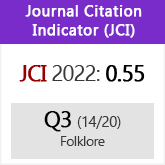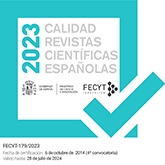Videos for neural networks: the negotiation of success with the Youtube recommendation system
DOI:
https://doi.org/10.3989/dra.2023.003Keywords:
YouTube, YouTubers, Artificial intelligence, Neural networks, SEOAbstract
Applications based on Artificial Intelligence increasingly mediate our relationship with the environment, giving rise to the emergence of adaptive processes with ethical and anthropological implications that are just beginning to be glimpsed. This text examines some of them through the case of youtubers. Youtubers are confronted daily with recommendation systems controlled by artificial neural networks that decide the fate of their productions, and many try to understand their functioning in order to gain advantage and get them “on their side”. The role of Artificial Intelligence is theorized by analyzing the speeches and practices of youtubers in front of these “algorithms”. It is hypothesized that they pressure participants to adhere to YouTube’s business model, turning their productions into offerings for the neural networks.
Downloads
References
Aberle, David. F. 1966. «Religio-Magical Phenomena and Power, Prediction, snd Control». Southwestern journal of Anthropology 22(3): 221-230. https://doi.org/10.1086/soutjanth.22.3.3629371
Álvarez Munárriz, Luis. 2001. «Antropología social e inteligencia artificial». Anales de la Fundación Joaquín Costa18: 95-110.
Bañuelos, Jacob. 2009. «YouTube como plataforma de la sociedad del espectáculo». Razón y palabra 66. Disponible en <http://www.razonypalabra.org.mx/N/n66/varia/jbanuelos.pdf> Fecha de acceso: 7 de enero de 2021.
Berrocal, Salomé, Eva Campos y Marta Redondo. 2014. «Prosumidores mediáticos en la comunicación política: el "politainment" en YouTube». Comunicar 22(43): 65-72. https://doi.org/10.3916/C43-2014-06
Bliss, Melissa. 2020. «Under the Radar. Older Women YouTubers and Algorithmic Influence». Feminist Media Studies 20(5): 745-747. https://doi.org/10.1080/14680777.2020.1783806
Bourdieu, Pierre. 1997. Sobre la televisión. Barcelona: Anagrama.
Burgess, Jean y Joshua Green. 2018. YouTube Online Video and Participatory Culture (2a ed.). Medford: Polity Press.
Cantón, Manuela. 2001. La razón hechizada. Teorías antropológicas de la religión. Barcelona: Ariel.
Castelfranchi, Cristiano. 1998. «Modelling Social Action for AI Agents».Artificial Intelligence 103(1-2): 157-182. https://doi.org/10.1016/S0004-3702(98)00056-3
Castillo Astudillo, Luz Marina y Blas Garzón-Vera. 2020. «YouTube, ¿un camino hacia la interculturalidad participativa?», en Angel Torres-Toukoumidis y Andrea de Santis-Piras. (coords.), YouTube y la comunicación del siglo XXI. Ecuador: Ciespal. https://doi.org/10.16921/ciespal.14.3
Colangelo Kraan, Pedro y Leonel Soto Alemán. 2020. «Reflexión crítica sobre los vínculos existentes entre YouTube y la televisión», en Angel Torres-Toukoumidis y Andrea de Santis-Piras. (coords.), YouTube y la comunicación del siglo XXI. Ecuador: Ciespal.
Covington, Paul, Jay Adams y Emre Sargin. 2016. «Deep Neural Networks for YouTube RECOMMENDATIONS». Proceedings of the 10th ACM Conference on Recommender Systems: 191-198. https://doi.org/10.1145/2959100.2959190
Debord, Guy. 1967. La sociedad del espectáculo. Valencia: Pre-textos.
Duncum, Paul. 2011. «Youth on YouTube: Prosumers in a Peer-To-Peer Participatory Culture».The International Journal of Art Education 9(2): 24-39.
Durkheim, Émile. 1968 [1912]. Las formas elementales de la vida religiosa. Buenos Aires: Schapire.
Frazer, James George. 1944 [1890].La rama dorada. Magia y religión,México: FCE.
García-Galera, María del Carmen y Angharad Valdivia. 2014. «Prosumidores mediáticos. Cultura participativa de las audiencias y responsabilidad de los medios». Comunicar: Revista Científica de Comunicación y Educación 22(43): 10-13. https://doi.org/10.3916/C43-2014-a2
Garimella, Kiran, Gianmarco De Francisci Morales, Aristides Gionis y Michael Mathioudakis. 2018. «Political Discourse on Social Media. Echo Chambers, Gatekeepers, and the Price of Bipartisanship». Proceedings of the 2018 World Wide Web Conference: 913-922. https://doi.org/10.1145/3178876.3186139
Han, Byung-Chul. 2012. La sociedad del cansancio. Madrid: Herder.
Jenkins, Henry, danah boyd y Mizuko Ito. 2016.Participatory Culture in a Networked Era: A Conversation on Youth, Learning, Commerce, and politics. Cambridge: Polity Press.
Jenkins, Henry. 2006. Fans, Bloggers, and Gamers. Exploring participatory culture. New York: New York University Press
Katz, Elihu y Paul F. Lazarsfeld. 1955. Personal Influence, The Part Played by People in the Flow of Mass Communications. Glencoe, IL.: Free Press.
Lange, Patricia G. 2019. Thanks for Watching. An Anthropological Study of Video Sharing on YouTube. Louisville: University Press of Colorado.
Latour, Bruno. 2005.Reassembling the Social: An Introduction to Actor-Network-Theory. Oxford: Oxford University Press. https://doi.org/10.1093/oso/9780199256044.001.0001
Lavado, Antonio. 2010. «El consumo de YouTube en España».Global Media Journal 7(14): 76-92. México.
Ledwich, Mark y Anna Zaitsev. 2020. «Algorithmic Extremism: Examining YouTube's Rabbit Hole of Radicalization». First Monday 25(3). https://doi.org/10.5210/fm.v25i3.10419
Lévi-Strauss, Claude. 1970 [1958]. «La eficacia simbólica». Antropología estructural: 168-185. Buenos Aires: Eudeba.
Lewis, Rebecca. 2018. «Alternative Influence. Broadcasting the Reactionary Right on YouTube». Data & Society 18. Disponible en: <https://datasociety.net/library/alternative-influence/>. Fecha de acceso: 9 de enero 2021.
Lewis, Rebecca. 2020. «"This is what the News Won't Show you" YouTube Creators and the Reactionary Politics of Micro-Celebrity». Television & New Media 21(2): 201-217. https://doi.org/10.1177/1527476419879919
Lopes, Isabel, Encarnación González Vázquez, Teresa Guarda y José Avelino Víctor. 2020. «The Influence of YouTubers in Consumer Behavior», en Álvaro Rocha, José Luis Reis, Mark K. Peter y Zorica Bogdanović (eds.) Marketing and Smart Technologies. Smart Innovation, Systems and Technologies 167. Singapur: Springer. https://doi.org/10.1007/978-981-15-1564-4_6
Luhmann, Niklas. 1998. Sistemas sociales: Lineamientos para una teoría general. Barcelona: Anthropos.
Malinen, Sanna y Aki Koivula. 2020. «Influencers and Targets on Social Media. Investigating the Impact of Network Homogeneity and Group Identification on Online Influence». First Monday 25(4). https://doi.org/10.5210/fm.v25i4.10453
Malinowski, Bronislaw. 1994 [1925]. Magia, ciencia y religión. Barcelona: Ariel.
Márquez, Israel y Elisenda Ardévol. 2018. «Hegemonía y contrahegemonía en el fenómeno YouTuber». Desacatos 56: 34-49. https://doi.org/10.29340/56.1876
Masadeh, Saleem y Bill Hamilton. 2020. «The Aftermath Of The Adpocalypse: Systemic Bias on YouTube». Proceedings of the CHI 2020 Workshop on Detection and Design for Cognitive Biases in People and Computing Systems.
Mauss, Marcel. 2009 [1925]. Ensayo sobre el don: forma y función del intercambio en las sociedades arcaicas. Buenos Aires: Katz. https://doi.org/10.2307/j.ctvm7bd0m
Pedersen, Emily. 2019. "My Videos are at the mercy of the youtube algorithm": how content creators craft algorithmic personas and perceive the algorithm that dictates their work. Tesis de Máster. Berkeley, CA.: University of California at Berkeley. Disponible en: <https://www2.eecs.berkeley.edu/Pubs/TechRpts/2019/EECS-2019-48.html>. Fecha de acceso: 07 ene. 2021.
Pfeilstetter, Richard. 2011. «The entrepreneur. A critical reflection on the current uses and meanings of a concept». Gazeta de Antropología 27(1): 1-11.
Rappaport, Roy. 1987. Cerdos para los antepasados. el ritual en la ecología de un pueblo en Nueva Guinea. Madrid: Siglo XXI.
Reynoso, Carlos. 2006.Complejidad y caos: una exploración antropológica. Argentina: Sb.
Ribeiro Horta, Manoel, Virgílio A. F. Almeida, Wagner Meira, Raphael Ottoni y Robert West. 2020. «Auditing Radicalization Pathways on YouTube». Proceedings of the 2020 conference on fairness, accountability, and transparency: 131-141. https://doi.org/10.1145/3351095.3372879
Roose, Kevin. 2019. «The Making of a YouTube Radical». The New York Times, June 8. Disponible en: <https://www.nytimes.com/interactive/2019/06/08/technology/youtube-radical.html>. Fecha de acceso: 21 de octubre 2020.
Torres Nafarrate, Javier. 1998. «Nota a la versión en lengua castellana», en Luhmann, Niklas, Sistemas sociales: lineamientos para una teoría general: 17-25. Barcelona: Anthropos.
Torres-Toukoumidis, Angel y Andrea de Santis-Piras (Coords.). 2020. YouTube y la comunicación del siglo XXI. Ecuador: Ciespal. Disponible en: <http://dspace.ups.edu.ec/handle/123456789/19292> acceso: 15 de febrero 2021. https://doi.org/10.16921/ciespal.14.21
Van Dijck, José. 2013.The Culture of Connectivity: A Critical History of Social Media. Nueva York: Oxford University Press. https://doi.org/10.1093/acprof:oso/9780199970773.001.0001
Van Gennep, Arnold. 2008 [1909]. Los ritos de paso. Madrid: Alianza Editorial.
Van Natta, Jared. 2020. Ragnarok: An Ethnographic Investigation of the Adpocalypse and the Political Economy of YouTube. Tesis doctoral. New Mexico State University.
Wu, Eva Yiwei, Emily Pedersen y Niloufar Salehi. 2019. «Agent, Gatekeeper, Drug Dealer: How Content Creators Craft Algorithmic Personas». Proceedings of the ACM on Human-Computer Interaction 3(CSCW): 1-27. https://doi.org/10.1145/3359321
Published
How to Cite
Issue
Section
License
Copyright (c) 2023 Consejo Superior de Investigaciones Científicas (CSIC)

This work is licensed under a Creative Commons Attribution 4.0 International License.
© CSIC. Manuscripts published in both the printed and online versions of this Journal are the property of Consejo Superior de Investigaciones Científicas, and quoting this source is a requirement for any partial or full reproduction.All contents of this electronic edition, except where otherwise noted, are distributed under a “Creative Commons Attribution 4.0 International” (CC BY 4.0) License. You may read here the basic information and the legal text of the license. The indication of the CC BY 4.0 License must be expressly stated in this way when necessary.
Self-archiving in repositories, personal webpages or similar, of any version other than the published by the Editor, is not allowed.
















